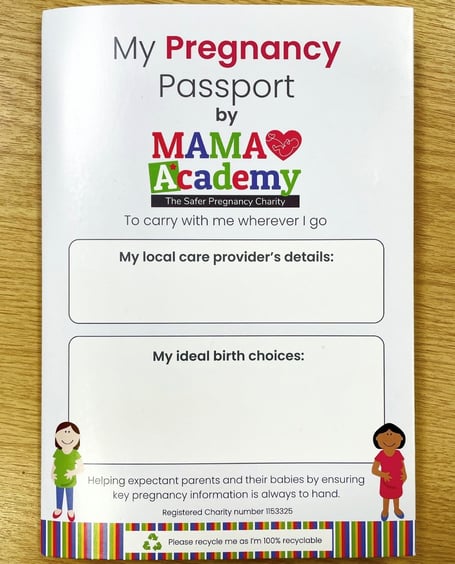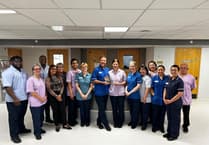New ‘pregnancy passports’ will be provided to parents to provide vital information that will help deliver their babies safely.
The small pamphlet both gives parents help with pregnancy questions and allows them to fill in some of the facts that would be needed by health professionals, such as blood type and risk factors.
Barbara Roberts, head of midwifery at Manx Care, said: ‘It’s fantastic that we’re able to offer these “passports” to women – they’re a really clear way of communicating vital information that parents can hold in their hands.
‘We’re excited to provide safer pregnancy messaging in a new, and sustainable, format.’
The maternity team are working with the Mums and Midwives Awareness (MAMA) Academy on the project, a charity that works to ‘empower maternity professionals and inform expectant parents about stillbirth prevention methods’.
Since the charity was founded in 2012, the number of stillbirths in the UK began a significant decline for the first time in 20 years, something which has continued ever since.
The A5 sized passports, made of recyclable material, also act as a checklist for Midwives to discuss important topics, and also include a clip and pouch to attach growth charts and important documents inside.
MAMA developed the passports following a ‘digital maturity assessment’ of NHS England which found that many parents still wanted physical, handheld, information alongside digital resources.
Guidance in the passport includes information on mental health and wellbeing as one in five women experience a struggle with their mental health during pregnancy.
It also advices those who are experiencing difficulty to seek help as ‘you’re likely to find that many new mothers are feeling the same way’.
Announcement of the scheme comes after the Royal College of Midwives criticised the Isle of Man’s lack of a maternity strategy in September before a meeting with Manx Care.
A representative recently said: ‘Manx Care is in the early stages of developing a Maternity Strategy for the island.
‘We are working to address issues raised in the recent report by the Royal College of Midwives (RCM), who are supporting us in our efforts to take steps forward in women’s care and a better working environment for staff.’
The RCM’s statement spoke of a shortage of consultant midwives and options for alternative birth situations, such as home births, in the island.
It also addressed the shortage of midwives in the Isle of Man and the fact that a third of the existing workforce is nearing retirement age, meaning the shortage will only get bigger.
The organisation’s ‘case for an Isle of Man maternity strategy’ said: ‘Women and their families deserve a maternity service that reflects the needs of the population, challenges health inequalities and offers choice to women within a safe, sustainable model of care.’




.jpg?width=209&height=140&crop=209:145,smart&quality=75)
Comments
This article has no comments yet. Be the first to leave a comment.